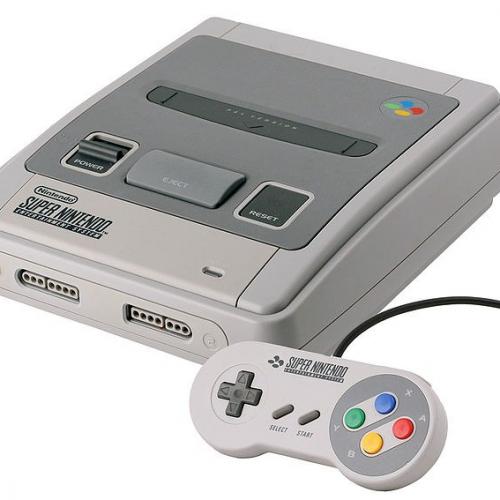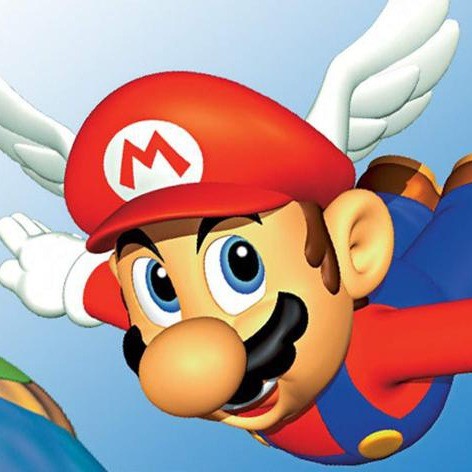Document

=====================================================================
The Net PC Games Top 100 Document - Version 11
=====================================================================This document should answer all possible questions about the weekly international games charts for the comp.sys.ibm.pc.games.* newsgroups. The document describes the way the charts are compiled and it decribes the way to participate in this. At the end, a list of frequently asked questions is presented, together with their answers. But first, let me present you some messages I got from the entertainment industry. The first is from Electronic Arts, the second from Apogee Software:
Thanks for sending us the weekly chart. It is much appreciated by both our development staff and marketing department. We use it to gauge the type of games that people are interested in. [...] Electronic Arts takes its users seriously. We always want comments, be it praise or critisism. Then we know if we are doing something good or bad. If a certain type of game is riding high we want to know why, and if our games aren't, we want to know why not. [...]Electronic Arts.
Just wanted to drop you a line about the Top 100. A while back, you posted a list of people who read the chart. I don't know which other companies actually do this, but I wanted to say that the list is more than just read by me. It's also printed and hung on the wall by the front entrance to the offices. Our stuff is highlited, and it's read by just about everyone in the office. Whenever a new list is posted, everyone checks it out, and I've seen a few customers of ours who have stopped in the office looking at it as well. This list is really great fun, and it's a nice tool as well. Keep it up!
Apogee Software
Don't worry, I will not quote all the messages I got from the software companies. Let me just give you their names: Access, Accolade, Adventions, AdventureSoft, Apogee, DC Software, Digital Integration, Dragon's Eye, Dynamix, Electronic Arts, Epic MegaGames, Id Software, Impressions, Interplay, LookingGlass Technologies, LucasArts, Maxis, Merit, MicroProse, Microsoft, New World Computing, Origin Systems, Papyrus, Raven, Sierra, Sir-Tech, Spectrum Holobyte, SSI, Three-Sixty and Wizard Games of Scotland. And these are only the ones I've had contact with. There may be other important readers out there.
Now that I have shown you that the Top 100 is a serious thing, I will explain what it's all about.
THE CHART...
The Net PC Games Top 100 is a weekly chart for PC games, compiled from votes that are sent by e-mail. Every game player in the world, having an e-mail account, is allowed to send his or her votes. The chart is published every Monday on Usenet in the comp.sys.ibm.pc.games.* newsgroups. It is also uploaded to the risc.ua.edu ftp-site and can be found in the /pub/games/solutions directory.
THE VOTES...
When you send me your votes, you are allowed to spread a total of 20 points over several games. Different games may get a different amount of points, but not more than 5 points may be given to one game. As a result, at least 4 games should get points when all 20 points are used. (It is allowed, of course, to use less than 20 points.) Try to concentrate on the games you play now, and not the ones you played a long time ago. The chart is not an all-time favourites list. It reflects the popularity of games that people are currently playing. There is a limit to the number of times you can vote for the same game, which is 26 times. After that you are encouraged to vote for other games you like. This rule tries to prevent stagnation in the chart by making life for very old games just a little harder.
The chart is compiled automatically by a program that reads and processes e-mail messages. When sending your votes, be sure to have the word "votes" (or "vote") in the subject of your message. Only points should be given in messages having this subject header. Send comments and questions in different messages using different subjects.
It is likely that your votes will not change much over the weeks and that it may be tiresome to send a new message every week. Therefore, everyone's votes are used for 4 weeks in a row. So, when your list of favourite games does not change, you only have to send a new message after 4 weeks. You will be notified when these 4 weeks have gone by, if you haven't sent new votes yet. New votes can be sent anytime. Your previous votes will automatically be discarded.
THE SYNTAX...
The message holding the votes should have one game on every line. The first thing to appear on the line is the number of points, second the title of the game, third the publisher(s). The line has to be ended with the ID (a 4-digit number) of the game, which can be found in the chart between brackets []. This ID is quite important, for it is the number used by the program that compiles the chart. For new games, that are not yet in the chart, the ID-number can be replaced with []. If you do not include an ID-number or [] then your vote for the game on that line will not be parsed and will not be stored in the database!
Here's an example of a message:
Subject: votes
> 3 Ultima underworld Origin/Mindscape [1019]
> 4 Wolfenstein 3D ID/Apogee [1013]
> 5 Push-over Ocean [1030]
> 5 Lure of the temptress Virgin [1046]
> 2 An American tail Capstone []
> 1 Comanche: Maximum overkill Novalogic [1101]
--
Jurgen "Jojo" Appelo - jojo@xs4all.nlBe sure to have the ID-number in square brackets []. A character at the beginning of the line, like '>', is allowed. Try to avoid having lines with unnecessary information, like disclaimers and remarks. If you have trouble deleting disclaimers, include "--" right before it. My parser will skip anything after "--".
History proves that many people type wrong ID-numbers. Therefore the title of the game is also needed on the line. If possible copy the title directly from the Top 100, so that it is identical to the chart's entry. If you change the title slightly, then my program may not be able to recognize it, and I will have to confirm it manually. So, help me a little.
The easiest thing to do is to reply to the message containing the latest chart. Copy the chart and delete all lines, except the ones containing your favourite games. Delete the numbers that hold this week's and last week's position and the number of weeks, and put in your points instead. This way you don't have to worry about titles, publishers and Idnumbers. And don't forget: points must be first on the line, not last.
THE RESTRICTIONS...
It is not allowed to give more than 20 points to the games or more than 5 points to one game. Extra points are automatically discarded by the program (at random).
You may send more than one message a week, but only the latest one will be used. (This can be useful when people change their mind.)
Do not forget to mention the publisher when giving points to a game that is not already in the chart. There are some games around that even I have never heard of. Some people mention the category for each new game, using the codes that are used in the charts. Some also tell me when it's a shareware game. I appreciate this very much.
Try not to vote for the same game more than 26 times. Your votes for this games will still be stored in the database, but they will not be used in the compilation anymore. This has no influence on the other games you vote for, of course.
THE DEADLINE...
The deadline for every chart is on Friday, around 1.00 pm (GMT). Messages that come in after the deadline are used for the next week. New charts are compiled in the weekend and published on (or before) Monday.
THE SENDING...
The new chart is sent to each person who has mailed me new votes. Although the votes are automatically used for 4 weeks, only the first next edition is sent to the voter. This way I can get people to vote more than only once a month, when they want to receive every edition of the list. This is an advantage for the actuality of the chart. When I send voters all four editions for which their votes are used, they will only report new games they are playing after the fourth week. By sending them only one edition for one mail with votes, they will report new games sooner.
THE FLAGS...
When you have voted for a game more than 26 times, you will receive a warning. It tells you that your votes for this game will not be used anymore. You may want to continue voting for your game, because the votes are still stored and used for the other list (Top 50). You can then add a #nowarning flag in the body of your message, to tell my program that you don't want to receive another warning. Otherwise you will be warned every time you vote for this game again.
There is another flag for people who've asked if it is possible to vote and not to receive the list. Well, now it is. Just add a #nolist flag in your message. You will then be excluded from the mailing list. But your votes will still be used. You will however still receive a call for new votes when your 4 weeks have expired. If you don't want to receive this call, you can add #nocall in your message.
- Add #nowarning if you don't want to be warned about the 26 weeks.
- Add #nolist if you don't want to receive the Top 100 list.
- Add #nocall if you don't want to be called for new votes.
And please, try to type them correctly, because #nomessage, #nowarn and other variations will not work.
THE COMPILATION...
For compiling the chart, the Top 100 from the previous week is used. The games get points corresponding to their position in this chart. These points are exponential. This means that the difference between the points of high positioned games is bigger than the difference between those in the lower regions of the chart. This assures that games can climb and drop rapidly in the lower regions, but have to fight a much tougher battle in the top of the chart.
After allocating these initial points, the points sent by mail in the last 4 weeks are normalized. This means they are multiplied equally, in such a way that the total of all these points is a constant number, used every week. This asserts that the number of votes received in a week has no influence on how much changes there are in the chart. More votes results in a more accurate chart, but not in a chart with more movement.
After the normalization, the resulting relative points of the voters are added to the initial points. This results in movement in the chart. When a game gets few or no points from voters, it will automatically drop in the new chart. When it gets many points by votes, it will climb.
As you should have noticed, it is not the case that the game that gets the most points from our voters, will automatically be number one. Only when it already has a very high position it could be number one in the new chart. Otherwise it will have to do serious climbing first, which will automatically be the case when it gets many points. This compilation system introduces a chart that is robust. Games can only reach the top when they get many points for several weeks in a row. The more usual "most points is highest position" system would cause very strange things to happen, when the number of voters is limited, like in this case. Another advantage of the adopted system is that it is more exciting. Voters can carefully watch the movements of their favourite games, and influence the movements by balancing their votes. Of course, the influence of a single person on the chart decreases, when the number of voters increases.
THE BULLETS...
In the Top 100 bullets are earned by games that climb very fast. Each game earns a bullet if...
it is on number 1 to 5 and has climbed at least 5 places
it is on number 6 to 10 and has climbed at least 6 places
it is on number 11 to 15 and has climbed at least 7 places
it is on number 16 to 20 and has climbed at least 8 places
etc...
New entries are considered as coming from number 101. I have experimented with a few different policies in the first ten weeks, but this one is now the one I'll stick with.
THE NEW CONTESTANTS...
Together with the Top 100 another list is published every week. It is called the The New Contestants. This list contains games that people have voted for, but which did not get enough points to enter the Top 100. It is useful for detecting new games that some other voters came up with and that you want to support too, to get them in the Top 100. As a result of the compilation system most games will enter this list first, before entering the Top 100.
THE TOP 50...
At the end of every month a Top 50 is compiled with the games that got the most points by voters only. No other information is used for this list. It is made to show exactly how much support the games got from the voters. It also includes any votes for games that have passed the 26 weeks limit, mentioned earlier. These votes are not used for the Top 100, but they are for the Top 50. Unlike the Top 100, this monthy Top 50 is compiled using the "most points is highest position" system. Since it is an addition of four weeks, four times as much points are used for this chart than for the Top 100. Still this list shows some unusual dropping and climbing of the games, due to the small number of voters. It upholds the choice for a different compilation method for the weekly Top 100.
THE TOP 5's...
One week after publishing the Top 50, as described above, a few small lists are published. They are the 5 games for each category that got the most points by email. Apparently, these are extracts from the Top 50. There's a Top 5 for action games, adventure games, simulation games, etc..., and there's also a Top 5 for shareware games. These are sometimes posted to the appropriate newsgroups separately.
THE PUBLICATION...
I don't have the intention to make money with the publication of the Top 100. All the work is done at no charge. Publication of this chart by others, in magazines and on bulletin boards, is allowed. There is nothing I ask for in return, except that the file is not altered and that I will be notified in advance.
Publication now takes place in several magazines. Most of them are electronic. Some people who own BBS's also publish the chart for their users.
THE FAQ...
These are the most frequently asked questions:
- Why aren't the games sorted by their number of points?
The points mentioned in the chart are an indication only of the support by votes and by news. When I order the games according to these numbers, the result would be ridiculous. Only a much larger number of voters can justify the ordering by these points only. Unfortunately, I don't have such a large number of respondents yet, so I have to use a more complex system to build a chart that's fun to watch. For more information I refer to the section "The Compilation".
- Can I vote for someone else?
You can only vote for one person. It doesn't matter who this person is. You may send votes for a friend, but then you cannot vote for yourself, because only one set of votes is allowed for every email address. Of course, two people can use one email address to combine their votes in one message within the restriction of 20 points.
- Can I get the chart every week?
You only get the chart every week if you send me your votes every week. This is the only way to receive the chart weekly, other than getting it yourself from the comp.sys.ibm.pc.games.announce newsgroup. I do maintain a mailing list that has game developers and publishers on it, and some publishers of magazines. They get the chart every week for obvious reasons.
- Where can I find the games you mention in the chart?
I only collect information concerning titles, developers, publishers and categories. I do not maintain a list of FTP sites, BBS's or other places where you can find some games. For this information you should post a message to the appropriate newsgroups and ask the readers. Some readers like to see the filenames of shareware games in the list, so that they can find them more easily. However, I think there is no reason for me to support shareware games or any other type of game. It would only influence their positions in the chart, which is certainly the last thing I want to do.
- Do you have hints, cheats, solutions or other information?
As a game fanatic, I do have some information for several games, but I only keep it for personal use. My work for the Top 100 implies having information about developers, publishers and categories, nothing else.
- Can I get a list of ID's for games that are not in the chart?
When you can't find your favourite game in the charts, you may leave out the ID when you vote for it. Games that haven't showed up in the chart have no ID yet. It is possible that a game you want to vote for has been in the chart once, but dropped out some time ago. For these you can leave out the ID too. Therefore you do not need some list of all ID's to be able to vote. Once in a month I do post a list of all games that have ever been in the Top 100, with their highest positions and other data. Check out the comp.sys.ibm.pc.games.announce newsgroup for this.
- Can I vote against games I dislike?
I asked the readers if they would support this idea, and the answer was no. If people would be able to vote against games with negative points, they could vote against games only because they hate the publisher, or only because they don't like the type of game, or only because it's one place above their favourite game in the chart. We don't want that to happen, so negative voting will not be supported.
- Doesn't this 26 times limit affect the credibility of the list?
No it doesn't. The positions of the games relative to each other have much less meaning in this Top 100, than in any other "normal" chart, because of the weird algorithms used for the compilation. What is important here is wether a game is climbing or wether it's dropping. Only if older games are able to find new voters again and again, they will stay high on the list. If they have to rely on the same voters forever, then after some time they will drop because of the 26 weeks rule. This is a very reasonable thing.
THE DISCUSSIONS...
"The Top 100 is just some stupid list."
No it is not. In fact, the Internet Top 100 is read by most important game developers and publishers. They think it's quite an interesting source of information.
"The Top 100 has no statistical value."
That's right. I never claimed it has. BUT, it still is a list that tells you more than you may think. For example, it told us that Alone in the Dark 2 is not at all such a big success as part 1 was. It tells us that Pinball Fantasies is by far more popular than Pinball Dreams was. It tells us that little games like Minesweeper and VGA Planets do better than many expensive commercial games. And it tells us that Pacific Strike was a joke compared to the flight-sims from MicroProse and Microsoft. Now try to find such interesting information in the magazines! You won't! But you're right when you say that the difference for a game being on number 2 or number 3 has little or no meaning.
"The Top 100 counts the number of messages in the newsgroups."
That was true some time in 1993. I stopped it because it took so much time. Only votes from voters are used for the compilation now.
"The 26 weeks rule makes the Top 100 unfair to older games."
Here's what we can choose from:
- No 26 weeks rule. Games can stay in the Top 100 as long as people are willing to vote for it. Even if it's the same set of voters supporting it till they die. Lastability of games gets more attention than hot new begging for attention.
- A 26 weeks rule (or any other number of weeks). Every week life will get harder for the older games. They will only survive as long as they are able to appeal to NEW voters. We see that Civilization is able to do so, and VGA Planets and Star Control 2. Other games can only rely on the same set of voters. They will die out. New games get more attention.
I prefer a chart that keeps itself fresh. Emphasis should be on the power to find new voters. And I really don't understand why people complain about being restricted to half a year. Take a look at the retail charts. When you buy a game it is only accounted for ONE time. Not 26 times. You don't complain about that too, do you? Your favourite games already have the ability to stay in the Top 100 much longer than in other charts. (At least I don't just remove them, like the CGW guys do.) What's the point in making this period endless?
THE PUBLISHER...
Jojo Productions
Brasserskade 124
2612 CH Delft
The Netherlands
correspondent: Jurgen Appelo
email: jojo@xs4all.nl

























Comments